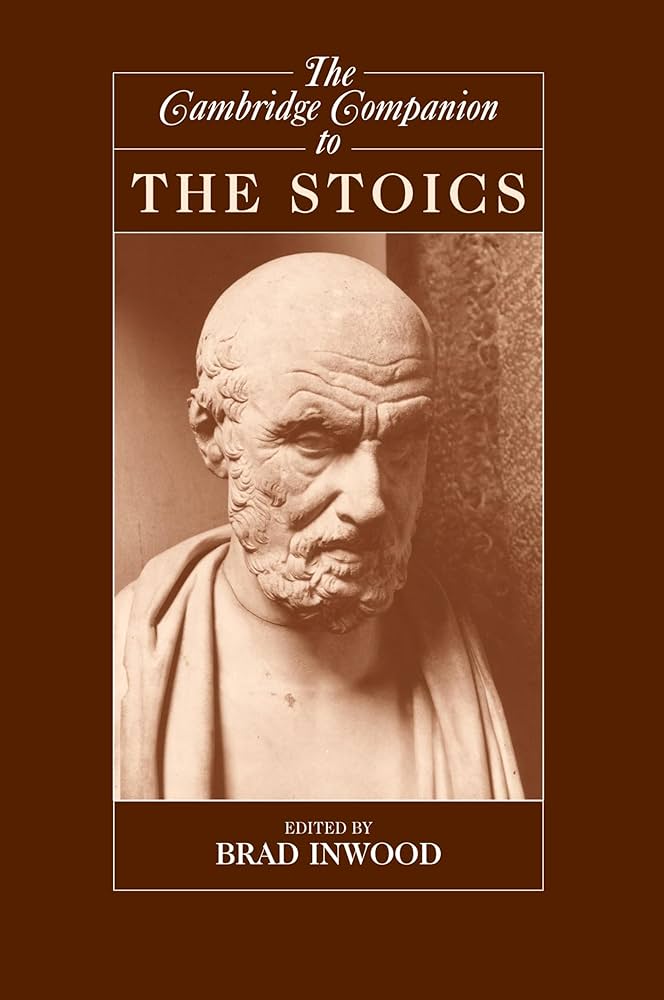The Cambridge Companion to the Stoics
May 2, 2025

It’s a fine book, though personally I wasn’t a fan of it. Don’t expect a cohesive, woven narrative—the book is more of a collection of papers on various facets of Stoic life. As such, it can go very in-depth, sometimes explicitly taking stances on published academic papers on these subjects and kind of “duking it out.” Knowing some Greek is probably helpful, or at least being familiar with Stoic terminology, as it’s extensively used and sometimes left untranslated. The chapter on logic is especially involved, and I would say not particularly relevant nowadays, since their systems have been largely subsumed into what we now call propositional logic. If you’re interested in Stoic logic, I’d actually recommend reading something focused specifically on that, as it’s a more developed take on the original ideas. Chapters like “Stoicism and Medicine,” “The Stoic Contribution to Traditional Grammar,” and “The Stoics and Astronomical Sciences” are a bit meme-like—interesting from a historical point of view, but not that strong philosophically (even though the authors would probably disagree). It also becomes clear that this is a collection of papers—for example, in the chapter “Stoicism, Naturalism, and Its Critics,” the author goes in-depth about the conflict between the theologian Butler and the Stoics, only for Butler to be introduced for the first time in the subsequent chapter, “Stoicism in the Philosophical Tradition.”
In summary, if you’re really into Stoicism and want to know everything about it, this book is probably for you. But if you’re just looking for a general overview, this one likely goes into too much depth.
Short snippet to illustrate the book’s style:
What is the opposite of ‘something’? The obvious answer seems to be ’nothing at all’. However, the Stoics are standardly credited with entertaining the queer notion of ’not-something’ (outina), supposed to describe an ontological status of universal concepts. On the basis of a small number of controversial texts, the Stoics are thought to identify the Platonic Forms with concepts, while denying that concepts are ‘something’, thus placing them outside their supreme genus and granting them the status of ’not-something’. They say that concepts are neither something nor qualified
(mete tina einai mete poia), but quasi-something and quasi-qualified (hosanei de tina kai hosanei de poia), mere phantasms of the soul. — Stoic Metaethics
